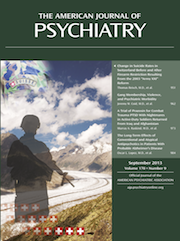Elyn Saks, J.D., and Shahrokh Golshan, Ph.D., wade into an interdisciplinary field by identifying a thin line to walk between the looming giants of the law on one side and psychoanalysis on the other. The context for their book is that the intersection of law and medicine has numerous points of tension born from distinct perspectives on complex topics. The doctrine of informed consent is an example of a legal theory and codification of medical ethical principles. Exploring the legal theory of informed consent in the context of psychoanalysis carries the original physical-based theory of informed consent into the most esoteric form of medical therapy. This frontier interdisciplinary space is where legal and medical principles achieve an approximation yet struggle to truly connect.
Unlike more passive physical medical procedures that the theory of informed consent is based on, psychoanalysis is a medical therapeutic relationship that develops over time. This unique book looks at this relationship, engaging in much needed research and discussion on a complex interdisciplinary subject. The book is directed toward clinicians with interests in informed consent process and practices in psychoanalysis. The authors were successful in their goal of initiating research on the informed consent process in psychoanalysis.
The authors explore the ways that informed consent promotes the same medical ethics principles of
primum non nocere (
1), justice, respect for the patient, and promotion of autonomy. They conclude that informed consent in psychoanalysis is a legal obligation, which is of use for directors of psychodynamic/psychoanalytic training centers who in their curricula address ethics and informed consent.
Saks and Golshan divide their book into five chapters. Chapter 1, “Law and Literature on Informed Consent,” reviews the current status of applicable case law and outlines the current legal state of informed consent in psychotherapy. In chapter 2, “Analysis of the Concept of Informed Consent: The Theory,” the authors deconstruct the elements of informed consent procedures as applied to psychoanalysis. In their third chapter, they review a survey that they conducted to investigate the current practices of informed consent in psychoanalysis. Here, they describe their study design, initial hypothesis, methods, and results. In chapter 4, “Empirical Study: Discussion,” they review their findings and extrapolate on the congruence or dissonance with reports of clinical practices. Their final chapter outlines the limitations of their survey (small sample size and constricted age range of respondents) and raises ideas for future research. The “Afterword: Our Own View” provides a discussion promoting a process view of informed consent to psychotherapy (
2). The appendices offer a useful collection of U.S. laws and regulations on informed consent organized by state.
The quandary that this book alludes to is that psychoanalysis is a spiraling ruminative process. This work by Saks and Golshan embodies, intimates toward, but does not clearly delineate the inherent contradictions of the legal doctrine of informed consent. Informed consent assumes a myth of a static and unified mind, juxtaposed with a fluid psychoanalytic comfort with instability of the “self.” Psychoanalysis questions this cultural legal need for uniformity in decision makers. For example, the psychoanalytic perspective raises the specter of the law’s reliance on the construct of a “reasonable person” as the baseline for proper decision making. If law is a reflection of social consciousness, then psychoanalysis serves to deconstruct these same images.
The intentional subject and “reasonable man” are disassembled in psychoanalysis to reveal a chaotic and irrational libidinal subject, a sexual being, a body and its drives.… Psychoanalysis in this sense…represent[s] law’s unconscious…an exorbitant threat to the order and reason of the legal system. (
3, p. 3)
Saks and Golshan are brave in their role of mapping a chaotic ecosystem that inhabits the interdisciplinary field of law, medicine, and psychoanalysis. In their mirroring of the interdisciplinary strengths of the legal and psychoanalytic positions, they distill down the clinical quandaries of psychoanalysis that operates in a world with rules we all create.

